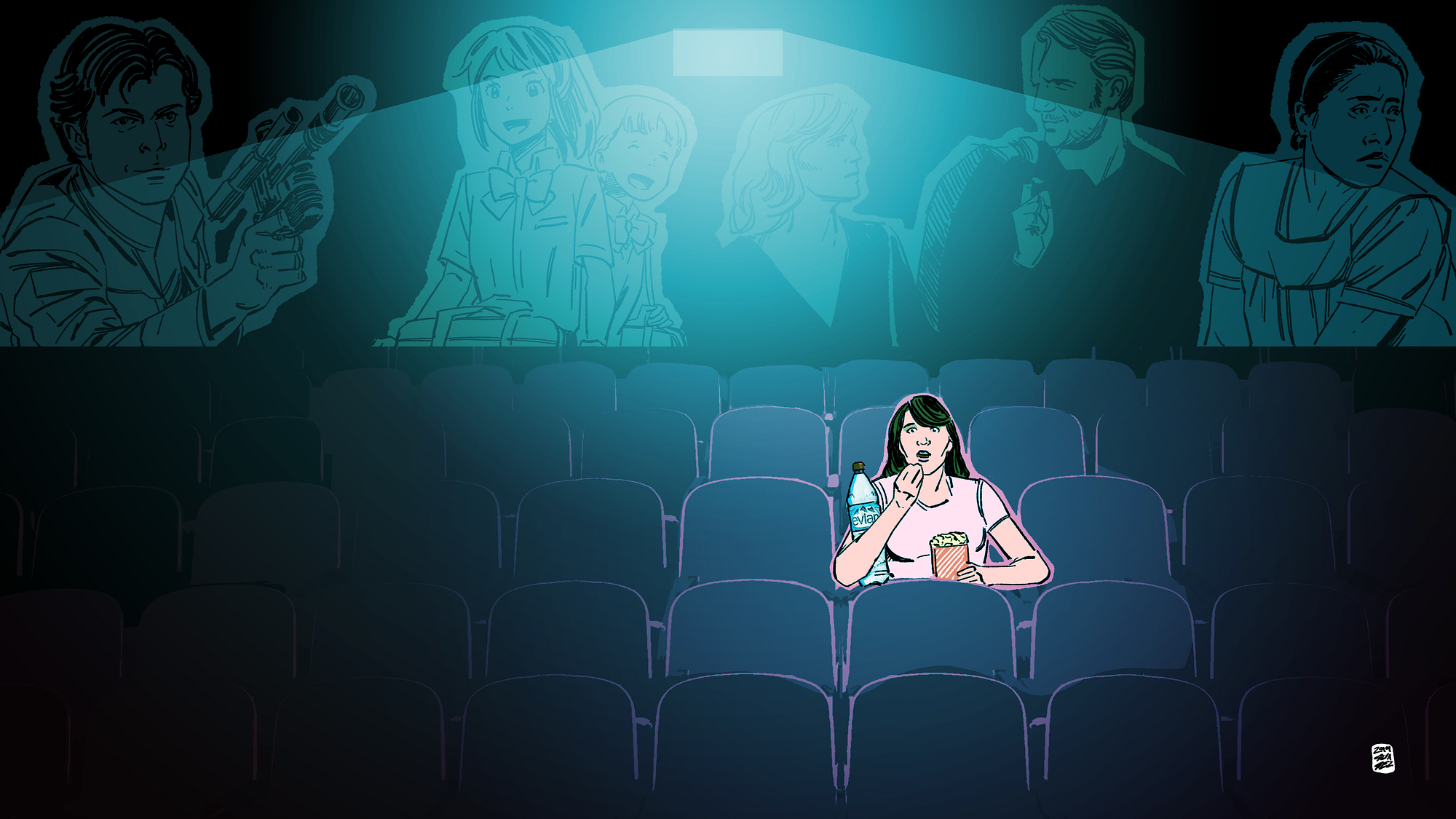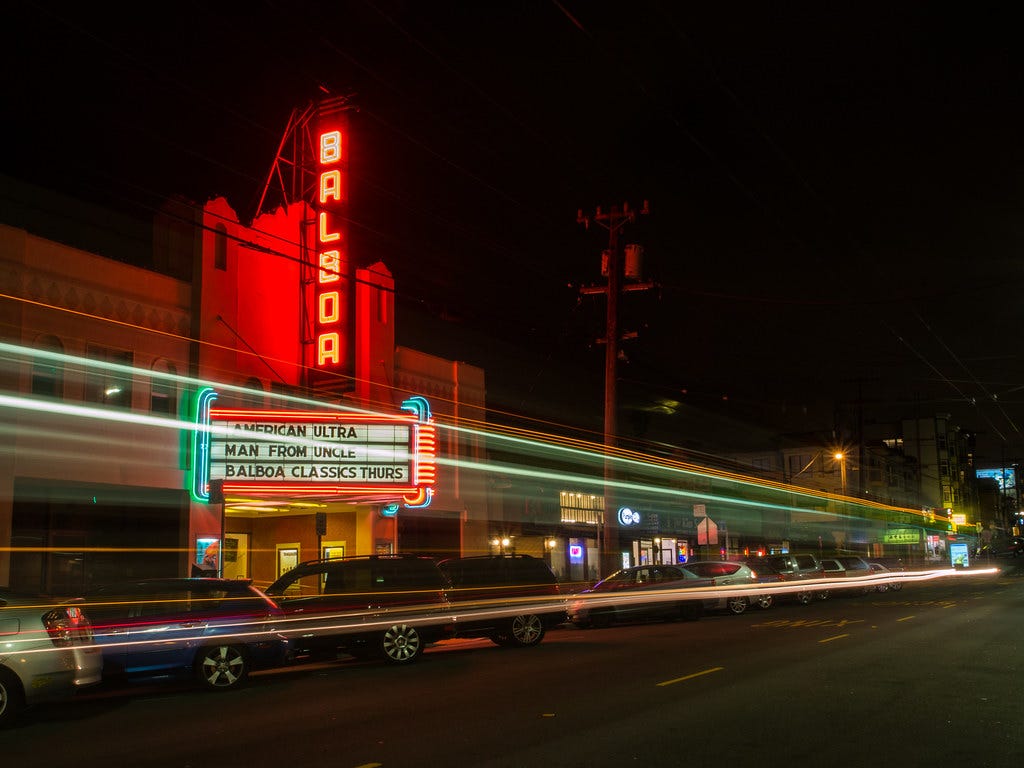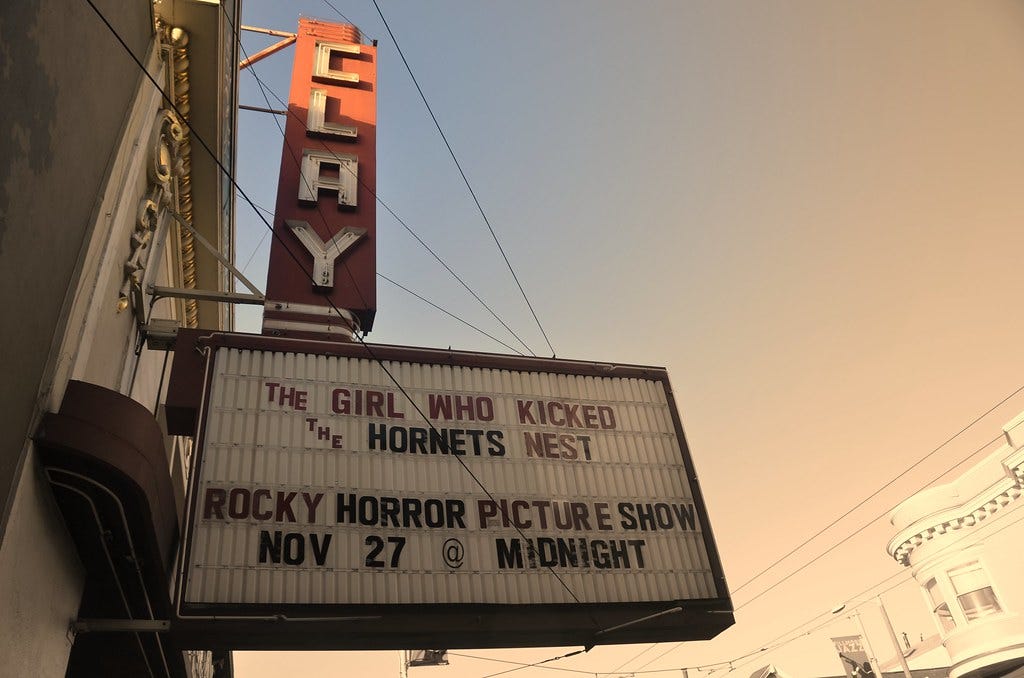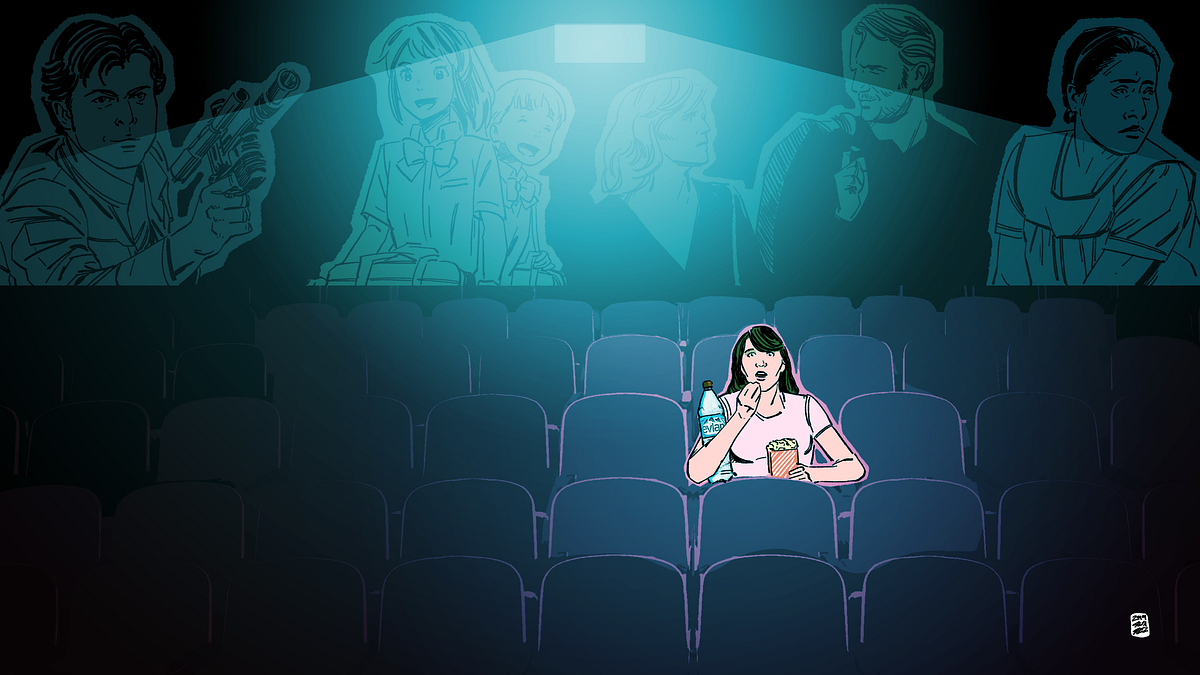
The first movie I went to see by myself after I stopped drinking was Solo: A Star Wars Story. I made a dumb joke about it on Instagram. Solo at Solo — get it? I didn’t know then, in May of 2018, that I would be spending almost every weekend over the next 11 months at movie theaters by myself.
I was 26 when I stopped drinking. I had been living in the East Bay for four years and had just moved into a tiny room in San Francisco that was defined by what it lacked: a window, a closet, and unimpeded access to the bathroom. But I was an activist in reproductive rights with a room in San Francisco, so how could I complain? That’s the thing about being in the depths of addiction: you don’t think you deserve good things. You’re a garbage person, plucking tequila shots out of trash cans in the Mission, taking secret swigs of vodka from the work freezer during lunch, or driving drunk. In the months before I got sober, I would daydream about the person I could be if I stopped drinking. It didn’t seem possible, but I liked to imagine it: the “after” so different from this wreck of a “before.”
The film started. And for the next two hours and 15 minutes, a marvelous thing happened: I forgot I was sober.
Solo: A Star Wars Story seemed like a safe place to start working on this “after” version of myself. I’m an absolute freak for Star Wars. I have a Darth Vader tattoo, have watched all six seasons of Star Wars: The Clone Wars, and own three lightsabers. But even armed with this fangirl superiority complex, I was nervous when I arrived at the Balboa Theatre. I hadn’t been to a movie by myself in years and felt self-conscious. But I was three weeks sober; it was a Friday night; and all my friends were out drinking. What other options did I have?

Situated on the edge of the Richmond District, its sandy stucco facade lit by the classic neon sign, the Balboa calls to mind romantic images of old Hollywood. The lobby has a lived-in nostalgic chic. I immediately felt at home.
That was, until I saw the craft beers under the glass at the concessions stand, and my anxiety came rushing back. It would be so easy to order one without anyone knowing that I shouldn’t. I was alone; no one would hold me accountable.
I managed to order popcorn sans beer. In the auditorium, the lights dimmed. The film started. And for the next two hours and 15 minutes, a marvelous thing happened: I forgot I was sober. I forgot that I was craving alcohol. I forgot that the last three weeks of my life had been utter hell. I left the Balboa feeling, for the first time, that I could stay sober. When I got home, I Googled “San Francisco independent movie theaters,” and thus began my year at the movies.
The movies were my secret. No one knew how often I went or why. I went because I had to.
I developed a routine. On Friday nights, I would drive to the Embarcadero Center Cinema and catch a late movie. On Saturdays, I would venture out to smaller, hidden treasures: the Four Star, Vogue, and Clay Theatres. On some days, going to the movies felt like a chore; I missed the excitement of my wild days before. But more often it felt exciting — even illicit. If my friends wanted to hang out, I would tell them that I was busy. The movies were my secret. No one knew how often I went or why.

I went because I had to. I never had the honeymoon phase with sobriety that other recovering alcoholics talk about, when you feel invincible. I felt terrible from the beginning. I wanted to give up every day. I persisted only because I was a straight-A student who hated to fail, even at sobriety. I limped through those first few months. I cried a lot. I went to occasional AA meetings, but I found them cultish and boring. One woman tried to befriend me at a Young Peoples Meeting in Cow Hollow. She was nice, but she was always asking which meetings I’d be attending over the weekend. I didn’t know how to tell her that I would rather be at the movies. I never went back.
Except for that first outing to Solo, I never wanted to drink at the movies. I liked the way my mind felt when it was alert and awake, thinking about a complex and beautiful film. It reminded me of what I’d been like as a teenager before I started drinking heavily. I could vaguely remember her, the bookworm who loved high-fantasy novels and old films, the writer who wanted to live in Europe in the 2020s like Hemingway did in the 1920s. I hadn’t been that person in years. I had replaced all my old hobbies with drinking, exchanged my old identity for that of the fun drunk. But alone in a dark theater, I felt like her again.
At the movies I could also avoid the temptation that large crowds invited. Before I stopped drinking, I was the life of every party. I’ve always been extroverted, but drinking made that extroversion feel safe. You’re not “too much” when you’re drinking — you’re just drunk. After I stopped drinking, I became a hermit, and movies were my refuge. I felt like I didn’t deserve to be around people, and I was scared of what would happen if I was. A loud room full of excited people felt as dangerous as one sip of beer. Both were gateways to my wildness, and I wasn’t allowing myself that wildness anymore.
I didn’t go to the movies every weekend that year, but I went on most weekends. Slowly, things started to change. In November of 2018, I took a week off from work and saw two movies every day. It was after watching Your Name at the Balboa that I finally admitted to myself that I hated being an activist; what I wanted more than anything else was to write stories. In December, I saw a Sunday matinee of Cold War at the Alamo Drafthouse. I sat in the middle of the empty, cavernous auditorium, letting the black and white wash over me, and as the flawed characters found love in one another, I thought, “Maybe I deserve good things too.” In January I saw Roma at the Castro, and as I cried through every scene, it hit me that I actually liked being sober. I wouldn’t have ended up in that theater, letting my emotions crash out of me, if I had still been drinking. I’d have been in a bar, making a million friends but completely numb.
When I was 11 months sober, I volunteered at the San Francisco Film Festival at the Roxie. The festival was busy, time-consuming, and adrenaline-pumping. It was the first time that I’d spent Friday and Saturday nights around large groups of people since I had stopped drinking. Between films I talked with new friends for hours, stayed up late eating popcorn in the lobby, and compared notes on the festival films. I was, once again, the life of the party. The thrill of it felt like drinking again.
On each night of the festival, I would return to the Outer Richmond where I was house-sitting and think about drinking. One night I took a bottle of wine out of the fridge and set it on the counter. It was Espiral Vinho Verde, an effervescent white in a slender green bottle. An old favorite. I opened the bottle, sniffed it. It smelled like grapefruit. It smelled like me. I put the bottle back, shaken. How was it possible to be outgoing, extroverted, and sober all at once? Surely, it wasn’t allowed. Surely, this was having one’s cake and eating it too. And if it was possible, had I been denying my true self for the past year by locking myself away at the movies?
There is an “after” to my story, but I have learned to love the “before” too and to find the wisdom in her.
The truth seems to be that while there is a “before” and an “after” with drinking, the “after” is not the end. Yes, you change, but then you don’t stop changing. Your needs and identity evolve. Sometimes you even regress. The new you is not static, just as the old you wasn’t.
It would be easy to say that Amelia “before” sobriety was all bad, but she wasn’t. It would be nice if healing were linear and if there were direct parallels between my year at the movies, my sobriety, and who I became that year. I wish that after Your Name I had quit my job. Instead, I stayed for another 10 months, although I did make an exit plan that week. I wish that after Cold War, I’d moved out of the apartment without easy access to the bathroom. I wish that after Roma, I had never wanted to drink again. But just like I needed 11 months of being a hermit to heal enough to come out of my shell, I needed time to learn to love myself and to accept that I do deserve good things.
I’m still sober, and it’s still hard. I still want to give up all the time. And I still go to the movies as often as I can. However, I also let myself go out with friends on weekend nights. I have a robust social life. I let my wildness out, and I love it. There is an “after” to my story, but I have learned to love the “before” too and to find the wisdom in her.
And I did finally move to Europe, just like Hemingway in the 1920s.







